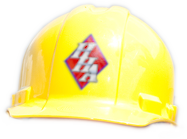Four Common MERV Filter Ratings: What You Need to Know
As an HVAC professional, your customers rely on you for all their heating and cooling needs. Sometimes, it is something as significant as a total HVAC system replacement. In other cases, it’s as simple as a recommendation on the right air filter. When a homeowner asks which Minimum Efficiency Reporting Value (MERV) air filter is best to use, it’s important to understand the four main types so you can determine what will be best for the customer’s air quality needs and budget.
What MERV Filter Should They Use?
These are the four most common MERV filters, which vary in terms of performance.
MERV 6 Filters
MERV 6 is the most basic filter. It has a microparticle performance rating (MPR) of 300. This filter is ideal for removing fine dust, lint, and pollen particles from the air. It’s also the most affordable option for the budget-conscious homeowner.
MERV 8 Filters
The next step up is the MERV 8. This filter also efficiently handles fine dust, lint, and pollen. However, it can also filter out dust mites and mold spores from the air, making it an excellent option for homeowners with indoor humidity issues. The MPR for this filter is 600, and its filter performance rating (FPR) is a solid 5.
MERV 11 Filters
The MERV 11 filter takes things up a notch by removing the same particles from the air as the MERV 6 and MERV 8—with the addition of pet dander, smoke, and smog. With an MPR of 1000-1200 and an FPR of 7, this is the filter to recommend for homeowners who have pets or are smokers. It is also an excellent choice for homeowners who live in metropolitan areas with a lot of air pollution and smog.
MERV 13 Filters
Last but not least is the MERV 13 air filter. In addition to all of the above air contaminants, this filter can remove viruses and bacteria from indoor air, giving it an impressive MPR of 1500-1900 and an FPR of 10. This is a great filter to recommend to the health-conscious homeowner, especially if someone in the home has a weakened immune system, such as an infant or an elderly adult.
Choosing the Right Filter
When recommending a filter to a client, make sure to check the specifications of their HVAC system. Filters with too high of a MERV can be damaging, less energy efficient, and even cause early system failure. To increase air purification further, you might also consider add-on Indoor Air Quality (IAQ) products to optimize home or business air cleanliness. Air purification systems will produce even CLEANER air using advanced technologies such as ultra-violet lights.
Stay up to date on all the latest HVAC industry trends and get the information you need to provide your clients with the quality service they deserve.
Source Credit: http://news.carrierenterprise.com/types-of-merv-filters/



